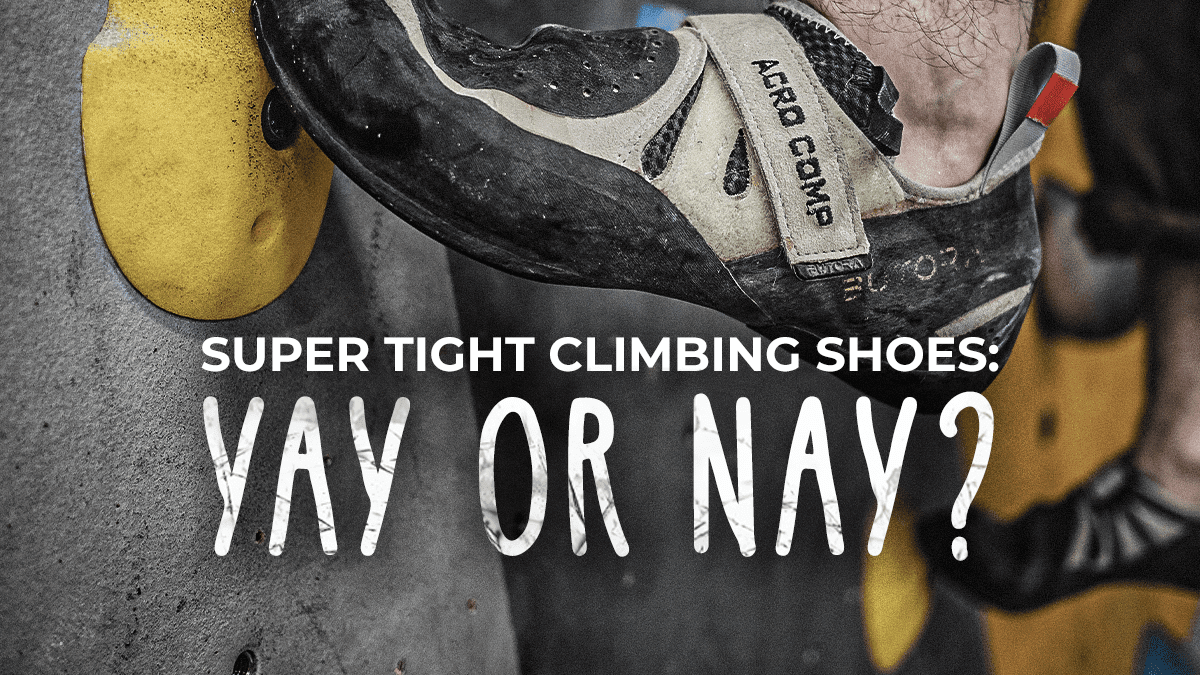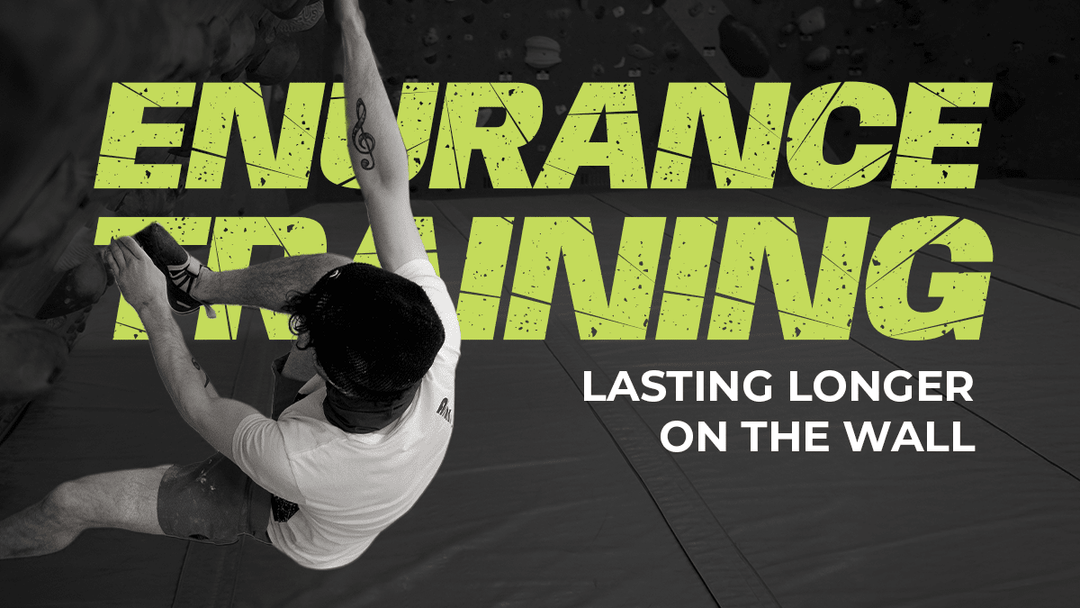Super Tight Climbing Shoes: Yay or Nay?

Have you ever been to the climbing gym and watched some boulderer use a plastic bag to squeeze his foot into a tiny climbing shoe like he was trying to zip an overstuffed suitcase? Maybe you've noticed a pro climber jamming their feet into their shoes in a climbing video. Like wearing a beanie with no shirt or having way too many items clipped to your harness, wearing super tight climbing shoes has become a comical staple of the climbing world. Let's take a look at why climbers may do this and why you may or may not want to hop in on the trend.

Why Climbers Wear Tight Shoes
First, consider the advantages of climbing shoes over your everyday street shoes for rock climbing. Your climbing shoes are made of more flexible materials that allow you to have better control of your feet and thus place them more precisely on smaller holds. Climbing shoes are also covered in rubber which provides you with more friction so that you are less likely to slip and slide off the wall. Your shoes have a variety of features that complement the unique movements of climbing. You have a heel cup for heel hooking, a toe rubber for toe hooking, and a stiff toe box for edging. Finally, they are tighter than your street shoes. Climbing shoes are ideally contoured to your feet so that you can feel the rock. The better you can feel the rock, the better chance you have of finding and sticking to a good foothold that won't blow when you put weight on it.
So the idea behind wearing tight shoes is that the climber will receive more tactile information from their feet while climbing. The tighter the shoe, the closer your foot is to the rock and the more sensitive you will be to those good holds. Not to mention, the more friction you create with your feet, the tighter you want your shoe to be, especially if that friction is created by pulling or pushing on the sides of the shoes. If your shoes aren't tight enough, a heel hook might blow your shoe right off!

Are Tight Shoes For You?
Wearing super tight shoes is a personal preference and certainly is not necessary for most climbers. Many climbers would not even notice the benefits provided by wearing tight shoes, only the negatives (ouch!). The advantage that tight shoes provide over a normal fitting climbing shoe is a very small one. High-end climbers sometimes need to take every advantage they can get, but for most of us, a little more sensitivity and a little more resilience to friction are hardly worth the pain of stretching out tiny shoes. What's more, properly fitted climbing shoes are already going to be tight. Remember, they are supposed to be contoured to your foot anyway!
You aren't going to jump a grade from jamming your feet into tight shoes. What's more important is going to be finding a shoe that is both high qualities and fits you properly. Leather shoes will stretch a lot more than synthetic shoes, so while they'll be tight at first, within a couple of wears you are rewarded with a more custom fit. Laces and velcro also make a difference in customizing the tightness of the shoe. Laces give you more control over the fit, but can be a pain to untie when you need a rest and also leave little room for rubber over the toe for toe hooking. Velcro, on the other hand, is easy-on, easy-off, and leaves plenty of room for rubber over the toe, but you sacrifice control over the fit, especially with more modern single strap shoes. Take a look at our article on finding the perfect fit for climbing shoes for more information.
At the end of the day, Adam Ondra could wear his approach shoes and still climb stronger than just about anyone else and most of us would probably climb the same grade in super tight shoes. Instead, focus on fitting your shoes properly and finding shoes that fit your climbing needs! What shoes do you wear and why do you think they fit your feet better than other shoes?




